10 Best Herbal Creams For Open Wounds
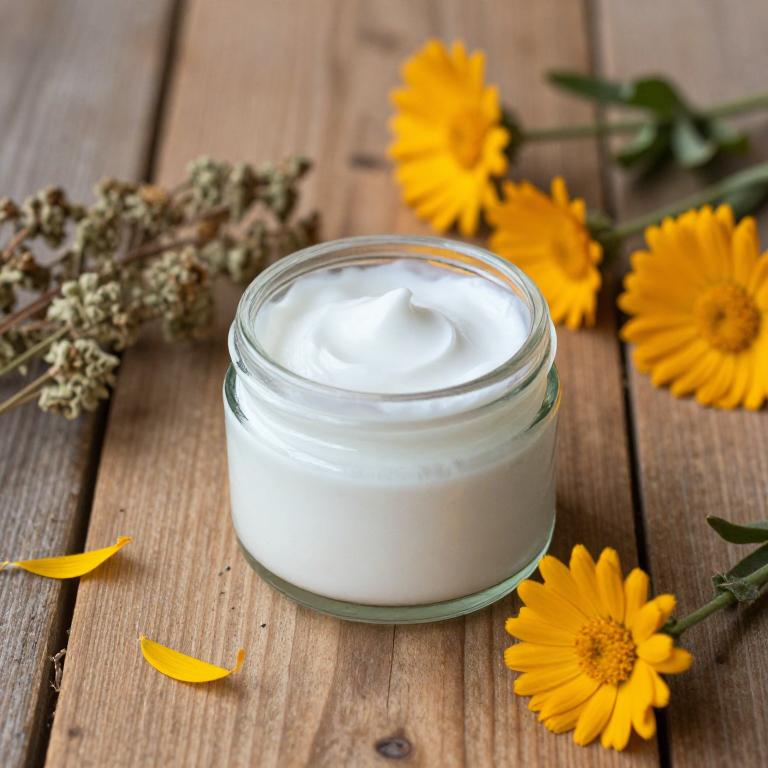
Herbal creams for open wounds are natural topical treatments that combine plant-based ingredients to promote healing and reduce infection risk.
These creams often contain anti-inflammatory and antimicrobial herbs such as calendula, aloe vera, and turmeric, which can soothe irritated tissues and support the body's natural healing process. They are typically preferred by individuals seeking alternatives to synthetic medications due to their mild formulation and potential for fewer side effects. However, it is important to consult a healthcare professional before using herbal creams on severe or deep wounds to ensure proper care and prevent complications.
While they may offer comfort and support, they should not replace medical treatment for serious injuries.
Table of Contents
- 1. Marigold (Calendula officinalis)
- 2. Aloe vera (Aloe barbadensis)
- 3. St. john's wort (Hypericum perforatum)
- 4. Common mallow (Symphytum officinale)
- 5. Common plantain (Plantago major)
- 6. Cancer bush (Sutherlandia frutescens)
- 7. Echinacea (Echinacea purpurea)
- 8. Purple coneflower (Echinacea angustifolia)
- 9. Stinging nettle (Urtica dioica)
- 10. Blessed thistle (Cnicus benedictus)
1. Marigold (Calendula officinalis)

Calendula officinalis, commonly known as pot marigold, is often used in herbal creams for its anti-inflammatory and antimicrobial properties, making it beneficial for treating open wounds.
These creams help promote healing by reducing inflammation and preventing infection, which can speed up the recovery process. The active compounds in calendula, such as flavonoids and triterpenes, contribute to its wound-healing abilities by stimulating cell regeneration and tissue repair. While calendula creams are generally safe for most skin types, it is important to perform a patch test to check for any allergic reactions.
They are often recommended as a natural alternative to conventional wound treatments, especially for minor cuts, scrapes, and burns.
2. Aloe vera (Aloe barbadensis)

Aloe barbadensis, commonly known as aloe vera, is widely used in herbal creams for the treatment of open wounds due to its soothing and healing properties.
These creams contain aloe gel, which has anti-inflammatory, antimicrobial, and moisturizing effects that help reduce pain, prevent infection, and promote tissue repair. The natural compounds in aloe vera, such as polysaccharides and enzymes, aid in accelerating the healing process by stimulating cell regeneration and reducing oxidative stress. When applied topically, aloe-based creams can provide a protective barrier over the wound, keeping it clean and moist to facilitate faster recovery.
However, it is important to consult a healthcare professional before using aloe vera creams on severe or deep wounds to ensure proper treatment and avoid any potential adverse reactions.
3. St. john's wort (Hypericum perforatum)

Hypericum perforatum, commonly known as St. John's Wort, is often used in herbal creams for the treatment of open wounds due to its anti-inflammatory and antimicrobial properties.
These creams can help reduce swelling, prevent infection, and promote faster healing by stimulating tissue regeneration. The active compounds in Hypericum perforatum, such as hypericin and flavonoids, contribute to its wound-healing benefits by protecting cells from oxidative stress. However, it is important to note that St. John's Wort may interact with certain medications, so consulting a healthcare provider before use is recommended.
Despite its potential benefits, it should not replace conventional medical treatments for severe or infected wounds.
4. Common mallow (Symphytum officinale)
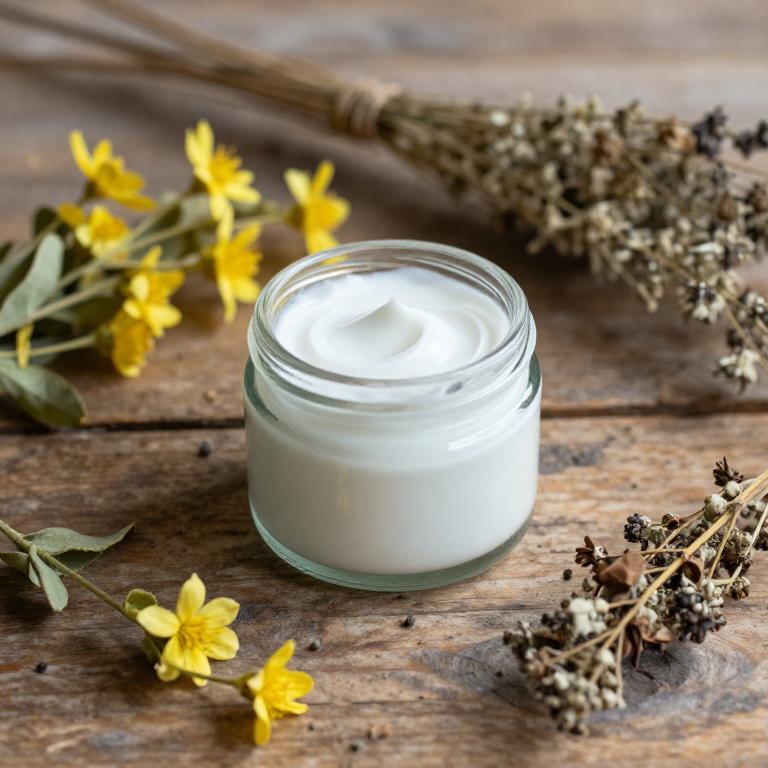
Symphytum officinale, commonly known as comfrey, is traditionally used in herbal creams for the treatment of open wounds due to its purported ability to promote tissue repair and reduce inflammation.
The active compounds in comfrey, such as allantoin and rosmarinic acid, are believed to support cell regeneration and enhance the healing process. However, it is important to note that comfrey contains pyrrolizidine alkaloids, which can be toxic to the liver if used for extended periods or in high concentrations. As a result, many modern herbal formulations have reduced or eliminated these alkaloids to ensure safety.
Despite its historical use, it is advisable to consult a healthcare professional before using comfrey-based creams, especially for deep or infected wounds.
5. Common plantain (Plantago major)
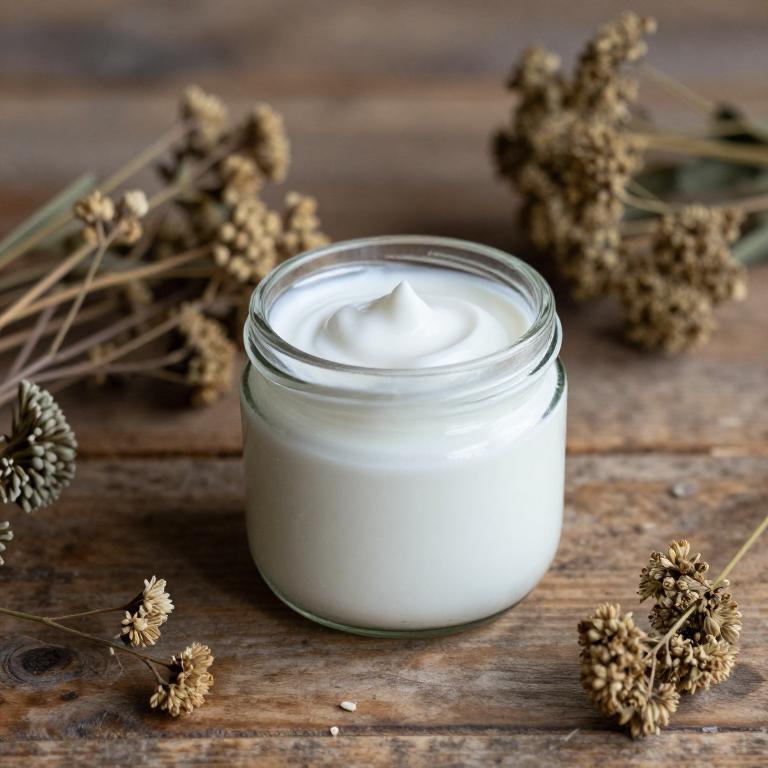
Plantago major, commonly known as plantain, has been traditionally used for its soothing and healing properties, making it a key ingredient in herbal creams designed for open wounds.
These creams often contain extracts from the leaves of the plant, which are rich in mucilage, tannins, and antioxidants that help reduce inflammation and promote tissue repair. The anti-inflammatory and antimicrobial properties of plantago major can aid in preventing infection and accelerating the healing process in minor wounds, cuts, and abrasions. When applied topically, these creams provide a protective barrier that helps keep the wound moist, which is essential for optimal healing.
As a natural remedy, plantago major herbal creams offer a gentle and effective alternative for those seeking non-synthetic options for wound care.
6. Cancer bush (Sutherlandia frutescens)
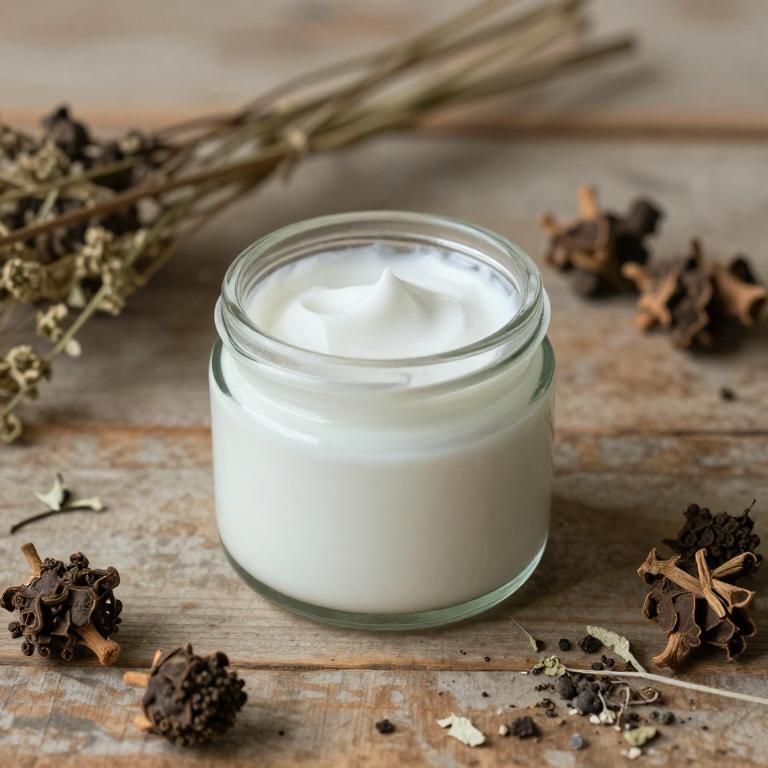
Sutherlandia frutescens, also known as "Cancer Bush," is a traditional South African plant that has been used in herbal medicine for various purposes, including the treatment of open wounds.
Herbal creams made from Sutherlandia frutescens are believed to possess anti-inflammatory and antimicrobial properties that may aid in wound healing by reducing infection risk and promoting tissue repair. These creams are often applied topically to clean, dressed wounds to support the body's natural healing process. While some preliminary studies suggest potential benefits, more research is needed to fully understand their efficacy and safety.
As with any herbal remedy, it is important to consult a healthcare professional before using Sutherlandia frutescens creams, especially for severe or chronic wounds.
7. Echinacea (Echinacea purpurea)

Echinacea purpurea, commonly known as purple coneflower, is a herbal remedy often used in the formulation of topical creams for open wounds due to its potential anti-inflammatory and antimicrobial properties.
These creams may help reduce inflammation and promote healing by stimulating the immune system and preventing infection. However, while some studies suggest benefits, the effectiveness of echinacea in wound healing remains a topic of debate among medical professionals. It is important to note that echinacea creams should not replace standard wound care practices, such as cleaning and dressing the wound.
Always consult a healthcare provider before using echinacea-based products, especially for severe or infected wounds.
8. Purple coneflower (Echinacea angustifolia)
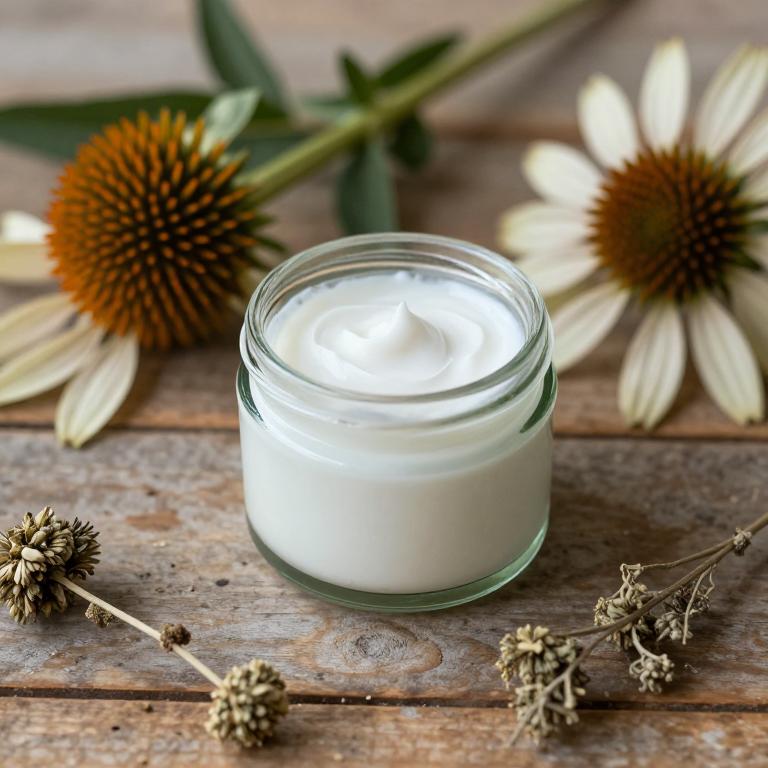
Echinacea angustifolia, a species of the echinacea plant, is traditionally used in herbal medicine for its potential anti-inflammatory and antimicrobial properties.
While it is commonly used to support the immune system, some formulations of echinacea angustifolia are incorporated into herbal creams for the management of open wounds. These creams may help reduce inflammation and promote healing by encouraging tissue regeneration and preventing infection. However, it is important to note that echinacea angustifolia should not replace conventional wound care practices and should be used under the guidance of a healthcare professional.
The effectiveness of echinacea-based creams for open wounds may vary, and further scientific research is needed to fully understand their benefits and risks.
9. Stinging nettle (Urtica dioica)

Urtica dioica, commonly known as stinging nettle, has been traditionally used in herbal medicine for its anti-inflammatory and astringent properties.
When incorporated into topical creams, it may help reduce swelling and promote healing in open wounds by stimulating tissue repair and reducing bacterial growth. However, it is important to note that while some studies suggest potential benefits, there is limited clinical evidence supporting its efficacy for wound healing. The plant contains compounds like histamine and formic acid, which can cause irritation, so caution is advised when using stinging nettle creams on broken skin.
As with any herbal remedy, it is recommended to consult a healthcare professional before applying it to open wounds to ensure safety and appropriateness.
10. Blessed thistle (Cnicus benedictus)

Cnicus benedictus, commonly known as St. Benedict's herb, has been traditionally used in herbal medicine for its potential wound-healing properties.
When formulated into creams, Cnicus benedictus may help reduce inflammation and promote tissue regeneration in open wounds due to its anti-inflammatory and antimicrobial compounds. The active components, such as flavonoids and saponins, are believed to support the body's natural healing processes by enhancing cellular repair and preventing infection. While some studies suggest its efficacy, more clinical research is needed to fully establish its benefits for modern wound care.
As with any topical treatment, it is advisable to consult a healthcare professional before using Cnicus benedictus cream on open wounds.